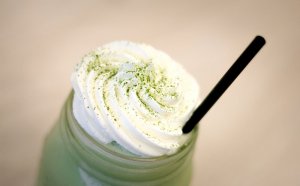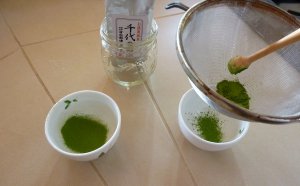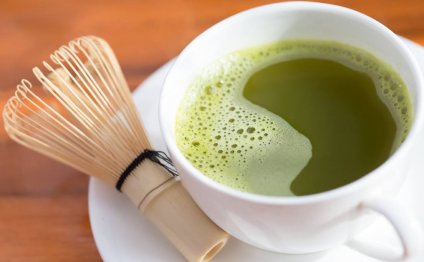
Matcha green tea caffeine
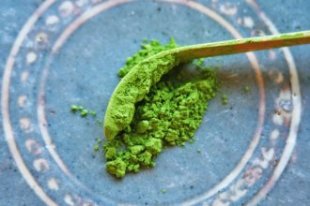 One of the most common questions we get is, “how much caffeine does matcha have?”
One of the most common questions we get is, “how much caffeine does matcha have?”
Matcha contains roughly 25mg of caffeine, which is approximately one-third the caffeine of a cup of brewed coffee. This is by most standards a very small amount of caffeine; it is easily tolerated by many people for whom coffee makes them jittery because all of the other components that make up matcha in effect slow down the release of caffeine into the body. It typically takes a good three to six hours for this minimal amount of caffeine to be absorbed into the bloodstream, and yet the wakefulness effects are apparent almost immediately upon drinking it.
In other words, matcha doesn’t make you “wired” — it’s nothing like coffee. If you’re wary of caffeine, you can relax (and matcha will make you relax).
By definition, all “real” teas — that is, teas that come from the plant camellia sinensis, including all black, green, and oolong teas — contain some caffeine. It’s built into the molecular structure of the plant.
Matcha is different from coffee, and from other teas, in one important aspect: the caffeine in matcha works in a synergistic manner with all the other great stuff that matcha contains, including hefty quantities of phytonutrients, antioxidants, and amino acids.
This combination of caffeine + phytonutrients + antioxidants + amino acids produces an unusual effect on matcha drinkers: an uncanny ability to focus and be productive over an extended period of a few hours (for some, the effect can last up to six hours). The effect is quite fascinating, and extremely pleasant for most people because there is none of the jitteriness associated with caffeine from coffee.
Because the caffeine molecules in matcha bind to larger and more stable molecules (especially catechins), the caffeine is, essentially, released over time, instead of all at once, as it is with espresso or brewed coffee, into the bloodstream. In contrast to coffee, this timed-release mechanism tends to inhibit any sudden insulin increases, so there is no “crash” associated with quick drops in blood sugar that so many coffee drinkers feel an hour or so after drinking a cup. Nor does matcha stimulate the production of cortisol, the stress hormone, as coffee can.
Our favorite description of the effects of caffeine in matcha comes from Dana Velden, a writer at The Kitchn.com. “The caffeine hit of an espresso can be a bit like having an express train screaming through the middle of your body: a deep, powerful, jittery roar. I find the effects of matcha to be just as stimulating but in a more delicate, refined way, as if a thousand butterflies have descended on my body, beating their wings until I’m lifted, gently but resolutely, a few inches off the ground. (Seriously.)”
RELATED VIDEO
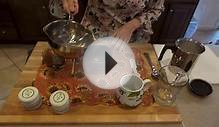
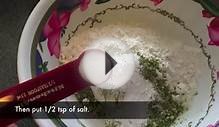
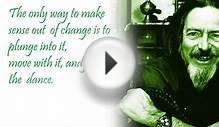
Share this Post
Related posts
Matcha green tea smoothie
This icy cold matcha kale smoothie really hits the spot. Matcha, (to me) is as good of a pick-me-up as coffee. Plus I was…
Read MoreHow to make Matcha green tea Latte?
Personal identification information We may collect personal identification information from Users in a variety of ways, including…
Read More
